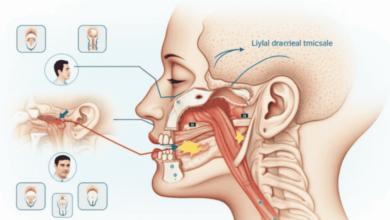Can Testosterone Make You Taller? Uncovering the Facts About Growth and Height

Can Testosterone Make You Taller? Exploring the Science Behind this Phenomenon
Testosterone is widely known for its role in male sexual development and overall physical health. It plays a key role in various bodily functions, such as muscle development, bone density, and mood regulation. However, one question that often arises is: Can testosterone make you taller? This question stems from testosterone and other hormones influencing growth, particularly during puberty.
In this article, we’ll dive deep into the science of testosterone, its role in human growth, and whether it directly affects height. We’ll also explore the factors influencing growth, including genetics, nutrition, and other hormones. By the end of this article, you’ll understand how testosterone may or may not impact height.
What is Testosterone?
Testosterone is a hormone produced primarily in the testes in males and in smaller amounts in the ovaries and adrenal glands in females. It belongs to a class of hormones called androgens, and it is responsible for developing male characteristics such as facial hair, deepening of the voice, and muscle mass.
Testosterone levels rise significantly during puberty, contributing to the growth spurt boys experience as they transition into adulthood. This hormone, however, does not work in isolation; it interacts with other hormones like growth hormone (GH) and insulin-like growth factor 1 (IGF-1) to regulate growth, including bone development.
The Role of Testosterone in Growth
Growth is a complex process influenced by various factors, and hormones play a critical role in regulating it. Testosterone, in particular, is important for pubertal growth and the development of bones and muscles.
Testosterone and Growth Plates
Height growth occurs at the epiphyseal plates, also known as growth plates, located at long bones. These plates remain open during childhood and adolescence, allowing the bones to lengthen as new cartilage is created and then ossified into bone. Testosterone contributes to closing these growth plates but promotes bone growth before they close.
In males, testosterone is one of the hormones that leads to the adolescent growth spurt. However, its involvement in closing the growth plates means that once puberty ends, the individual stops growing taller. So, while testosterone can initially contribute to height increase during puberty, it eventually halts further growth.
Testosterone and Bone Density
Another critical role of testosterone is enhancing bone density. Higher testosterone levels lead to stronger, denser bones, which indicate overall health. However, bone density does not necessarily correlate with an increase in height. Strong bones are essential for posture and overall strength, but they don’t directly contribute to how tall a person becomes.
Can Testosterone Make You Taller After Puberty?
This is one of the most frequently asked questions. The simple answer is: No, testosterone cannot make you taller after puberty. Once the growth plates close, which usually happens between 18 and 20 for most individuals, height is generally fixed. While testosterone can continue to promote muscle growth and bone density after this period, it will not reopen growth plates or lengthen bones.
Testosterone Replacement Therapy (TRT) and Height
For individuals who have low levels of testosterone, particularly before or during puberty, testosterone replacement therapy (TRT) is sometimes prescribed. In cases where a person experiences delayed puberty or testosterone deficiency, TRT can help promote growth by ensuring that the individual reaches their genetic potential regarding height.
However, no amount of TRT can increase height once growth plates are closed. IAdmin, which is tearing testosterone in large amounts, can speed up the closure of growth plates, potentially stunting growth if taken prematurely during adolescence.
Factors That Influence Height
Height is determined by a combination of factors, including genetics, hormones, and nutrition. While testosterone plays a role, it is only one piece of a larger puzzle. Here’s an overview of the key factors that affect height:
1. Genetics
Genetics is the most significant factor influencing height. It’s estimated that the height of their parents determines 60-80% of an individual’s height. If both parents are tall, there’s a good chance their children will also be tall. On the other hand, if both parents are short, the likelihood of having a taller child decreases, although exceptions exist.
2. Growth Hormone
The pituitary gland secretes growth hormone (GH), which is one of the primary drivers of growth in childhood and adolescence. GH works in tandem with testosterone to promote bone growth, especially during puberty. GH stimulates the production of insulin-like growth factor 1 (IGF-1), which directly promotes growth at the epiphyseal plates.
A deficiency in GH can lead to stunted growth, while an excess can result in gigantism, where individuals grow much taller than average. GH levels decrease after puberty, contributing to the cessation of height growth.
3. Nutrition
Nutrition plays a crucial role in maximizing genetic height potential. A diet rich in vitamins, minerals, and protein is essential for proper growth and development. Calcium, vitamin D, and protein are important for bone growth and health. Malnutrition during childhood and adolescence can fail to reach one’s full height potential, even if the individual has the genetic makeup for greater height.
4. Physical Activity
Regular exercise, particularly activities that promote strength and flexibility, can positively impact growth during childhood and adolescence. Exercise stimulates the release of growth hormone, which in turn encourages the growth of bones and muscles. Weight-bearing exercises, such as walking, running, and strength training, can also help build strong bones, although these exercises do not necessarily make a person taller.
5. Sleep
Growth hormone is primarily secreted during sleep, making adequate rest essential in reaching your full height potential. Growing children and adolescents should get between 8 and 10 hours of sleep each night to maximize growth.
Testosterone Deficiency and Its Impact on Height
Low testosterone levels during childhood or adolescence can lead to delayed puberty and stunted growth. Boys with testosterone deficiency may fail to undergo the typical adolescent growth spurt, which can leave them significantly shorter than their peers.
In such cases, testosterone replacement therapy (TRT) may be recommended to jumpstart puberty and promote growth. TRT can help individuals achieve their genetic height potential, although its effectiveness depends on when it is started. If treatment is delayed too long and the growth plates have closed, TRT will not increase height.
Symptoms of Testosterone Deficiency
- Delayed puberty
- Reduced muscle mass
- Lack of facial or body hair
- Fatigue and lack of energy
- Small testes
- Poor bone density
Suppose these symptoms are present, especially during the early teenage years. In that case, it may be necessary to consult with a healthcare provider to evaluate testosterone levels and consider treatment options.
Testosterone and Other Growth-Enhancing Treatments
In some cases, individuals may explore other growth-enhancing treatments in addition to testosterone. These treatments aim to maximize height before the growth plates close. Here are a few examples:
1. Growth Hormone Therapy
Growth hormone therapy is prescribed for individuals diagnosed with GH deficiency or conditions that result in stunted growth. Administering synthetic GH can help children and adolescents reach a more typical height for their age group.
2. Limb-Lengthening Surgery
For adults who are past puberty and wish to increase their height, limb-lengthening surgery is a potential option. This procedure involves surgically breaking the bones in the legs and using metal rods to lengthen them slowly over time. However, this is a highly invasive procedure with significant risks and a long recovery period.
3. Posture Improvement
Poor posture can make a person appear shorter than they are. While improving posture won’t increase bone length, it can help maximize your perceived height. Stretching exercises, yoga, and strength training can all improve posture and help you stand taller.
Can Taking Testosterone Supplements Make You Taller?
Over-the-counter testosterone supplements are often marketed as products that can increase muscle mass, energy levels, and even height. However, there is no scientific evidence to support the claim that testosterone supplements will make an individual taller, especially once the growth plates have closed.
Using testosterone supplements without medical supervision can lead to negative side effects, including the premature closure of growth plates, which could stunt growth if taken during adolescence.
Conclusion
Testosterone plays a significant role in growth, particularly during puberty. It helps stimulate the growth of bones and muscles, contributing to the adolescent growth spurt. However, testosterone does not affect height once the growth plates close after puberty.
While testosterone replacement therapy can be useful for individuals with low testosterone levels, especially in promoting normal growth during adolescence, it cannot increase height after puberty. Ultimately, height is determined by a combination of genetics, hormones, and environmental factors such as nutrition and physical activity. Testosterone is one factor contributing to a person’s final adult height.
If you’re looking to enhance your growth potential, focusing on a healthy lifestyle, balanced nutrition, regular exercise, and adequate sleep are key factors that will help you reach your genetic height potential.
Frequently Asked Questions (FAQs)
Can testosterone therapy help increase height?
Testosterone therapy can help increase height in individuals who experience delayed puberty or low testosterone levels before their growth plates close. However, once the growth plates close after puberty, testosterone therapy will not lead to further height increases.
At what age does testosterone stop influencing height?
Testosterone plays a role in growth during puberty but stops influencing height once the growth plates close. For most individuals, this happens around ages 18 to 20, meaning testosterone will no longer affect height after this period.
Can testosterone supplements make adults taller?
No, testosterone supplements cannot make adults taller. No supplement or therapy, including testosterone, can increase height after the growth plates close, typically after puberty. Supplements may help with muscle growth but not with bone lengthening.
What role does testosterone play during puberty?
During puberty, testosterone stimulates the growth of bones and muscles, contributing to the adolescent growth spurt. It also helps develop secondary sexual characteristics like facial hair and a deeper voice.
Is low testosterone a reason for short stature?
Low testosterone can contribute to delayed growth and short stature during puberty. However, genetics primarily determines height, and while testosterone deficiency may delay growth, it is not usually the sole cause of short stature.
Can boosting testosterone after puberty still affect overall body development?
While boosting testosterone after puberty won’t increase height, it can still positively impact muscle mass, bone density, and overall energy levels. However, once the growth plates have closed, it will not lead to further height growth.





